The year 2022 has been tumultuous for Indian-administered Kashmir as the ruling Bharatiya Janata Party (BJP) government continued to introduce policies that experts and locals fear are aimed at disenfranchising and disempowering the region’s Muslim-majority population.
As quoted from Al Jazeera on Sunday, the latest move by the government is the introduction of new rules aimed at the implementation of a law that deals with the leasing of government land.
Since August 5, 2019, when the BJP government unilaterally stripped the region of its limited autonomy and split it into two parts, land has emerged as a prime focus of the government. The region’s administration is ruled directly by New Delhi. In the past three years, it has issued a series of orders opening the region to outsiders, sparking fears that the government wants to change the demography of the region so that it is no longer Muslim-majority.
‘Attack on our livelihood’
Also Read: The Forty-Four-Days of Glory: Azerbaijan’s Struggle for Justice and Peace
The latest rules introduced earlier this month are being viewed by many as particularly controversial. They require local businesspeople to return land leased from the government. The rules explicitly threaten eviction for those who violate them.
The government has refused to extend the leases of native hoteliers. Instead, it wants to auction these permits. Opposition parties and local businesses have protested — the move might divest hundreds of Kashmiri hoteliers from ownership of their properties.
The land can be now leased to outsiders including former members of the Indian armed forces, war widows and migrant workers, according to the government’s notification.
The Gulmarg ski resort in north Kashmir and the picturesque Pahalgam area in south Kashmir will be among the most affected and will now be open for outsiders to buy hotels through e-bidding.
Also Read: Palestine Solidarity Month: A Collective Movement for Al-Aqsa and Palestine’s Freedom
“This is a direct attack on our livelihood,” one of the hoteliers in the region, told Al Jazeera on condition of anonymity, as people fear publicly speaking against the government.
Sheikh Ashiq, a trade union leader in the region, told Al Jazeera that businesses have expressed their apprehension to the government. “We want that the government should take a sympathetic approach and give the opportunity to the locals to keep running their businesses.”
The region’s administrative head, Manoj Sinha, has defended the move and termed old laws “regressive”, but local politicians have criticised it, saying it is aimed at “bringing settlers”.
“We have been saying from the beginning that the aim of BJP … was to loot our resources and snatch our land and bring settlers like how Israel is doing in Palestine,” Mehbooba Mufti, the former chief minister of the region, told media on the controversial law.
Also Read: Hassan al-Turabi: A Controversial Thinker from Sudan
Arrest of journalists
The past year was also particularly difficult for journalists in Kashmir.
The media is operating in a climate of fear, with the homes of several journalists raided and some summoned by police for questioning – which observers describe as an attempt to silence the press from reporting about realities in the region.
The strategy appears to be working. Analysts said that the government’s controversial orders are being overlooked by the media, while state-sponsored events promoting the administration’s picture of Kashmir are covered on the front pages in local and national media.
Also Read: Who Exactly is the RSF Group Shaking Sudan?
The arrest of two journalists, Sajad Gul and Fahad Shah early this year under the controversial Public Safety Act (PSA), a law under which a person can be imprisoned for up to two years without a trial, has further frightened journalists. Both of them have been shifted to distant jails making it difficult for their families to reach them.
They were arrested for “spreading false narratives” and “glorifying terrorism”.
Reporters Without Borders, a Paris-based media watchdog, this year ranked India 150th among 180 countries in its annual World Press Freedom Index – India’s lowest rank ever. Rights activists have raised concerns over dwindling press freedom in India.
The government in the region also closed down the Kashmir Press Club – the region’s largest elected journalists’ body, and took over the building that housed the organisation.
Also Read: The Two-State Solution (Palestine–Israel) in Historical Perspective
Many journalists have also been barred from international travel. On October 18, Pulitzer Prize-winning Kashmiri journalist Sanna Irshad Mattoo was stopped from travelling abroad.
Many local journalists told Al Jazeera that they “prefer silence over writing in praise of the government”.
Radha Kumar, an Indian academic and author in New Delhi, told Al Jazeera that the policies have caused “more and more disempowerment of locals at every level” in Kashmir.
“You hardly hear those [civil society] voices any more,” Kumar said.
Also Read: Enchanted by K-Dramas, Dragged into Slander: Time for Muslims to Rise!
“In local media, I don’t remember when I last read an opinion piece on the situation in Kashmir. The freedom of media has gone. The silencing of dissent and arresting journalists are very authoritarian steps,” Kumar added.
Altered electoral map
In another move likely to affect the outcome of elections in the region, the government decided to redraw Kashmir’s electoral map after the completion of a delimitation exercise in May.
This angered residents and politicians who said the universal idea fundamental to democracy — that every vote carries equal value — had been violated. The total number of legislative seats in the region has been increased from 83 to 90. But while the number of seats in the southern area of Hindu-majority Jammu was raised from 37 to 43, it only increased by one seat from 46 to 47 for Kashmir. This, when Kashmir has a significantly larger population than Jammu.
Also Read: Creating Opportunity and Avoiding Misery; Lesson Learn on Waste Recycling Issue
In effect, the average population of an assembly constituency in the Muslim-majority Kashmir will be 140,000, while it will be only 120,000 in Jammu.
Yet for any of that to matter, the region first needs elections. Since the previous government fell in 2018, Jammu and Kashmir has not had an elected administration, with New Delhi, 810km (500 miles) away, running the region.
“The delimitation process took 27 months instead of the initially allotted one year. Now that process is complete, the subsequent electoral roll revision is also complete but there is not even a hint of assembly elections,” Zafar Choudhary, a political analyst based in the southern city of Jammu, told Al Jazeera.
“In less than five months from now, the region will complete five years without legislature and elected government, which will be the longest for any state in India in the last 25 years,” Choudhary said.
Also Read: Between the Treaty of Hudaybiyyah and Ceasefire in Gaza
The Himalayan region of Kashmir is divided between nuclear-armed neighbours India and Pakistan but is claimed by both in its entirety. The two countries have fought two of their three wars over the region.
Targeted killings of local Hindus
Many of the measures that the BJP-ruled government of Prime Minister Narendra Modi has taken in recent years have been pitched as aimed at strengthening law and order in the region, where armed rebels have fought for independence for more than 30 years.
Yet, Kashmir has been rocked by rare protests from local Hindus commonly known as Kashmiri Pandits, who blocked highways and held rallies against the ruling government after a series of targeted killings against their community by suspected rebels.
Also Read: Peace Cannot Be Achieved Without a Palestinian State
For months, hundreds of Hindu government employees have been protesting and boycotting their jobs. They are demanding that the government relocate them outside the turbulent region.
According to government figures, 14 people from minority communities were killed in 2022. It includes three local Hindus and migrant workers.
For years, the Indian government has been trying to bring local Hindus back to Kashmir, from where they had fled in the 1990s during the peak of armed rebellion when many of them were victims of targeted killings by armed groups. Under the government’s rehabilitation policy, announced in 2008, nearly 3000 Kashmiri Pandits had returned. (T/RE1)
Mi’raj News Agency (MINA)
Also Read: Facing the Wall: Netanyahu and Ambitions Built on Blood






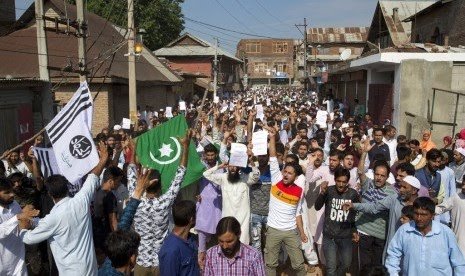



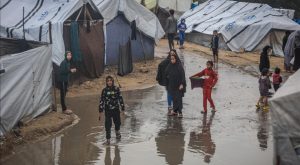
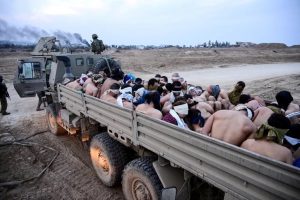
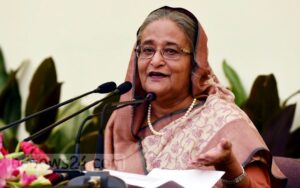


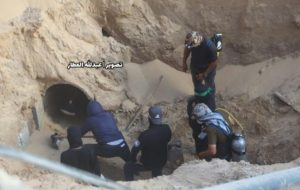
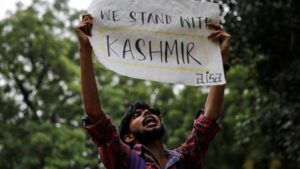
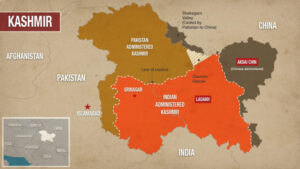
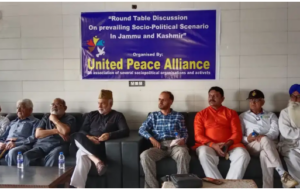
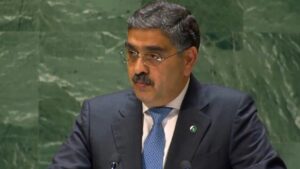

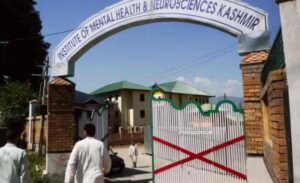













 Mina Indonesia
Mina Indonesia Mina Arabic
Mina Arabic